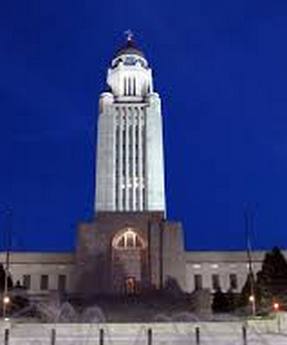![]()

A bill banning gender-affirming care for minors in Nebraska received second round approval Thursday, but only after the speaker of the Legislature announced he would work out a compromise.
Speaker John Arch took the extraordinary move of suspending business on the floor for nearly an hour to hash out behind closed doors an agreement with the dominant conservative majority to reach a compromise during final round debate.
That led to a 33-16 vote to halt second-round debate after 4 hours, followed by an identical 33-16 vote to move the bill to final consideration.
Both Arch and the bill’s author, freshman Senator Kathleen Kauth, admitted details of a compromise have yet to be worked out, but Kauth said she expected to sit down with a handful of supporters, opponents and medical experts in the coming days.
Kauth doesn’t have much time to find a compromise apparently needed to keep one or more of the bill’s co-sponsors from voting against it. There are fewer than 30 days left in the 90-day session and final-round debate on the bill has not yet been scheduled.
Tempers were short after Wednesday’s contentious all-day showdown that advanced a bill banning abortion after about 6-weeks by the same 33-16 margin.
Some supporters of the ban on gender-affirming treatments suggested that such treatments have led to an increase in suicide and suicidal thoughts in transgender teens and that children were “being groomed” in schools to develop gender dysphoria.
Senator Megan Hunt, who revealed during first-round debate that she has a transgender son, told bill supporters they didn’t know what they were talking about.
She said that by supporting the bill, they were telling transgender kids they reject them – “and that’s what’s leading to suicidal ideation in kids. You are throwing gasoline on the fire.”
Another opponent, Senator Machaela Cavanaugh of Omaha, attacked the bill as unconstitutional because it targeted a group of people because of how they identify.
She said the measure doesn’t keep teenage girls who identify as girls from getting breast reduction surgery or teen boys who identify as boys from having surgery to remove excess breast tissue, only transgender teens who wanted breast surgery..
